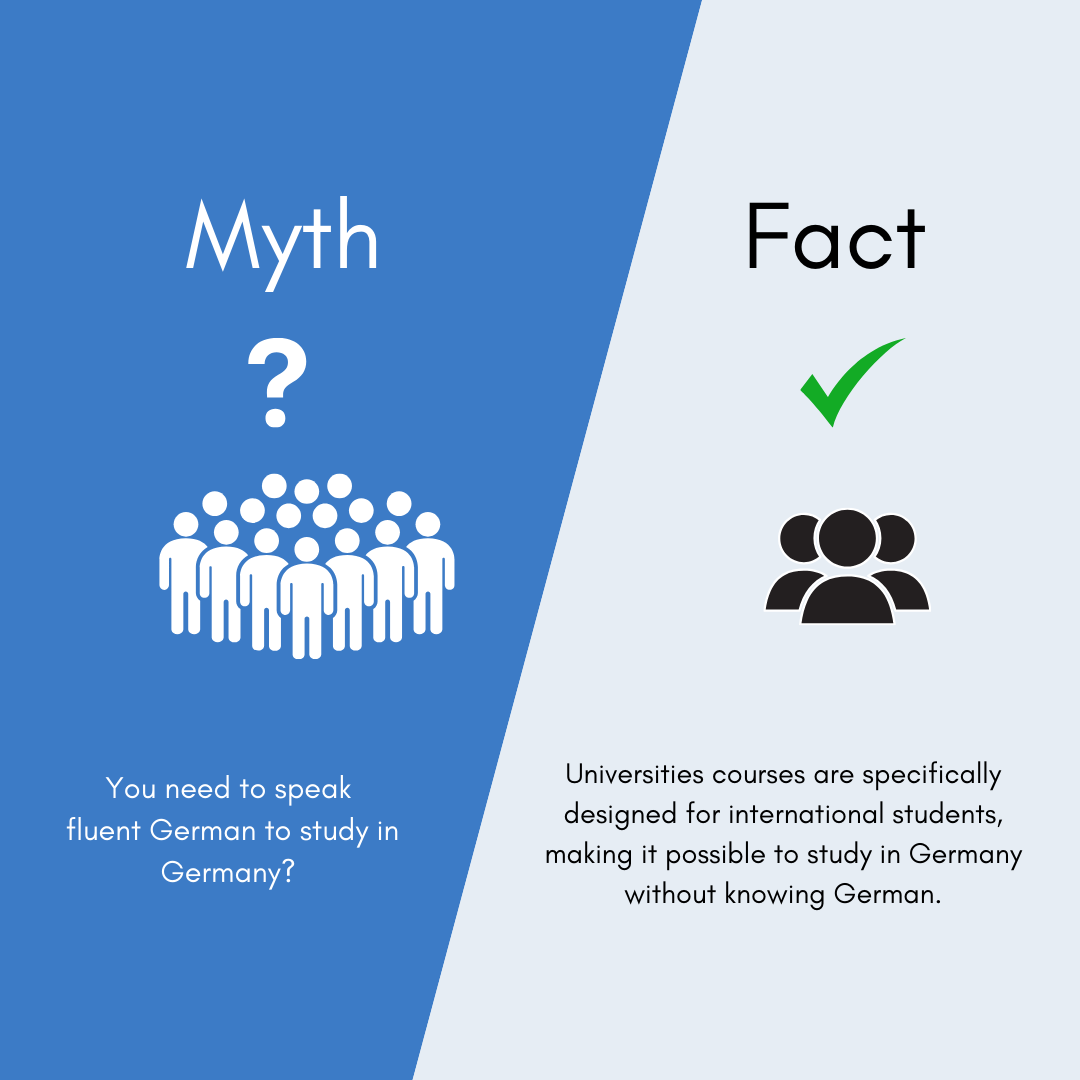
Unlocking Excellence: Exploring the Unique Offerings of European Universities in Germany
July 22, 2024
The Academic and Cultural Benefits of Studying in Germany: A Guide for eiIET Applicants
September 8, 2024Common Myths About Studying in Germany
Are you considering studying abroad, particularly in Germany, but unsure due to various myths circulating online? Don't let misconceptions hold you back from pursuing your academic dreams. This blog post aims to debunk prevalent myths about studying in Germany, providing you with accurate information to make an informed decision.

1. Myth: Studying in Germany is only affordable for wealthy students.
Fact: Germany is well-known for its affordable education system. Many scholarships and funding options are available to help students, regardless of their financial situation. Living costs can vary depending on the city, but studying in Germany can be quite affordable compared to other countries with student discounts and careful budgeting.
2. Myth: You need to speak fluent German to study in Germany.
Facts: While many believe that fluency in German is a must for studying in Germany, the reality is that numerous universities, such as EIIET, offer English-taught programmes to attract international students. Many programmes are specifically designed for international students, making it possible to study in Germany without knowing German. However, learning essential German can enhance your experience and help with daily life. Moreover, German language courses and support services help international students adapt.
3. Myth: The admission process for German universities is overly complex and bureaucratic, creating unnecessary hurdles for international students.
Fact: The Admission Process could be more manageable. While German universities are known for their high academic standards, the admission process is relatively more straightforward than in other countries. Requirements vary by programme and university, but gaining admission is achievable with proper preparation and meeting the eligibility criteria. Most institutions, like EIIET in Germany, have clear guidelines on their website outlining the required documents and application steps.
4. Myth: Degrees from German universities are not recognised internationally.
Facts: German universities are highly respected worldwide for their research output and academic excellence. Degrees from German institutions are recognised internationally, and graduates from German universities enjoy international recognition for their degrees. The country's strong focus on practical skills and research ensures that students are well-prepared for their careers.
5. Myth: It’s Hard to Integrate into German Society.
Fact: Germany is a welcoming country with a rich cultural diversity. Many universities have programmes and services to help international students integrate, such as cultural events and language courses. Large cities like Berlin, Munich, and Frankfurt are very global and offer a vibrant social life for students worldwide.
6. Myth: Finding a Job After Graduation is Challenging.
Fact: Germany has a robust economy and a strong demand for skilled professionals. International graduates from German universities can stay in the country for 18 months after graduation to seek employment. Many students find that the practical experience gained during their studies, such as internships and projects, makes them competitive candidates in the job market. Job opportunities after graduation are plentiful across various sectors, ensuring that graduates with relevant skills can find rewarding career paths in Germany.
7. Myth: Germany is All About Beer and Sausages
Fact: While beer and sausages are iconic in German culture, the country offers much more regarding food, culture, and lifestyle. Germany has a rich history, a vibrant arts scene, beautiful landscapes, and diverse cuisine. Students can explore everything from modern cities to picturesque villages, making their study experience unique. Germany's cultural diversity enriches the experience of international students.
Dispelling these myths can help prospective students better understand the opportunities and realities of studying in Germany, making it an attractive option for higher education. Now equipped with accurate information, you can confidently consider Germany a top destination for your higher education journey. The myths about studying in Germany often overshadow the numerous benefits it offers. Whether it's affordable education, diverse programmes in English, or excellent career prospects, Germany stands out as a welcoming and academically enriching choice.
